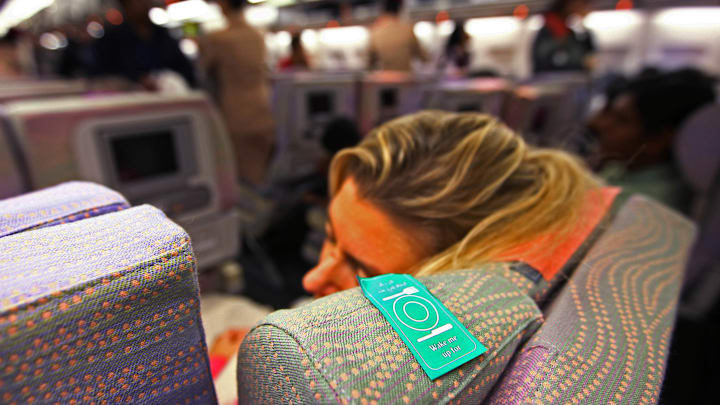Jet lag can be a real buzzkill, turning your dream vacation or important business trip into a groggy struggle. But it doesn’t have to ruin your plans! With a little preparation and the right strategies, you can minimize its effects and hit the ground running, no matter where you land. Here’s how to avoid jet lag and maximize your energy during your travels.
Adjust your schedule before you travel
A few days before your trip, start shifting your sleep and meal times to match your destination’s time zone. If you’re traveling east, try going to bed and waking up earlier; if you’re heading west, stay up later. This gradual adjustment can help your body adapt more smoothly.

Stay hydrated during your flight
Airplane cabins are notoriously dry, which can leave you feeling fatigued and worsen jet lag. Drink plenty of water before, during, and after your flight to keep your body hydrated. Avoid alcohol and caffeine during the flight, as they can disrupt your sleep and dehydrate you further.

Use light to reset your body clock
Exposure to natural light is one of the most effective ways to adjust your internal clock. Spend time outside during daylight hours at your destination, especially in the morning. If you arrive at night, minimize exposure to bright lights and screens to help your body prepare for sleep.
Prioritize sleep on the plane
Sleeping during your flight can make a big difference in how you feel when you land. Use a travel pillow, noise-canceling headphones, and an eye mask to create a comfortable sleep environment. If it aligns with your destination’s time zone, take a short nap or a sleep aid (consult your doctor first).

Plan your first day wisely
Once you arrive, try to stick to your destination’s schedule. If it’s daytime, resist the urge to nap and stay active. If it’s nighttime, create a relaxing bedtime routine to signal your body that it’s time to sleep. A warm shower, herbal tea, or reading a book can help you unwind.
Bonus tip: fuel your body with the right foods
Eat light, balanced meals that are easy to digest and avoid heavy, greasy foods during your flight and upon arrival. Foods rich in protein and healthy carbs can provide sustained energy and help combat fatigue.

Jet lag doesn’t have to derail your adventures. With these practical tips, you’ll be better equipped to adjust to new time zones and make the most of every moment at your destination. So pack your bags, set your clocks, and get ready to travel like a pro!
